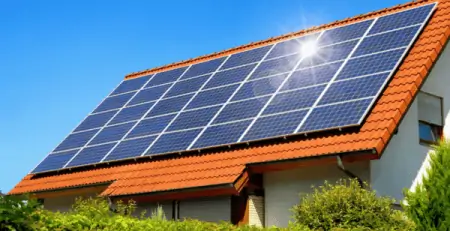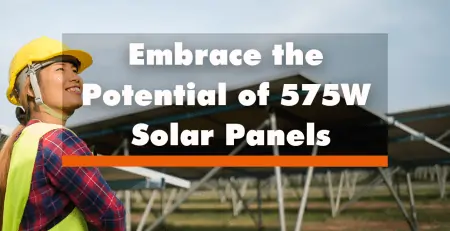Residential solar panel maintenance cost
Residential solar panels are a long-term investment that can provide significant savings on energy costs while also reducing your carbon footprint. However, to ensure that your solar energy system continues to function properly and efficiently, regular maintenance is crucial. Neglecting to maintain your solar panels can result in decreased energy production, damage to equipment, and even safety hazards. The cost of maintaining your residential solar panels can vary depending on a variety of factors. Some of the factors that can impact maintenance costs include the quality of your solar panels and equipment, your location and climate, the age of your solar panels, and the complexity of your solar energy system.
Regular Maintenance Tasks
Here are some key tasks to include in your maintenance routine:
Cleaning solar panels
Dirt, dust, and debris can accumulate on the surface of solar panels, which can reduce energy production. To prevent this, it’s important to regularly clean your solar panels. This can be done using a soft brush or sponge and a mild soap solution. Avoid using harsh chemicals or abrasive materials that can damage the surface of the solar panels.
Checking electrical connections
Loose or damaged electrical connections can also impact energy production. To prevent this, it’s important to regularly check the wiring and connections between your solar panels and inverter. If you notice any loose or damaged connections, it’s important to have them repaired as soon as possible.
Inspecting mounts and hardware
The mounts and hardware that secure your solar panels to your roof or ground mount can also be subject to wear and tear over time. It’s important to regularly inspect these components and ensure that they are secure and functioning properly. Any damaged or worn components should be replaced promptly.
Monitoring energy production
One of the most important aspects of solar panel maintenance is monitoring energy production. This can help you identify any changes or issues with your system that may require attention. Monitoring energy production can be done using software or hardware monitoring systems that track the amount of energy your system is producing over time.
Maintenance Costs
Here are some key factors to consider when estimating maintenance costs:
Cost breakdown of regular maintenance tasks
The cost of regular maintenance tasks, such as cleaning, inspecting, and monitoring, can vary depending on the size and complexity of your solar energy system. Cleaning may require only basic tools and materials, while inspections and monitoring may require specialized equipment or software. It’s important to budget for these tasks to ensure that your solar panels are properly maintained over time.
Comparison of DIY versus professional maintenance costs
Performing regular maintenance tasks yourself can save you money in the short term, but it’s important to weigh the benefits of professional maintenance as well. Professionals have the training and experience to identify potential issues before they become more costly to repair.
Explanation of how maintenance costs can impact long-term savings
Proper maintenance can help ensure that your residential solar panels continue to produce energy at an efficient rate over the long term. Neglecting maintenance, on the other hand, can lead to decreased energy production, damage to equipment, and safety hazards. By investing in regular maintenance, you can help avoid these issues and extend the lifespan of your solar panels. In turn, this can help maximize the long-term savings potential of your solar energy system.
Factors Impacting Maintenance Costs
The cost of maintaining your residential solar panels can be impacted by several factors. Here are some key factors to consider when estimating your maintenance costs:
Quality of solar panels and equipment
The quality of your solar panels and equipment can impact the frequency and cost of maintenance. Higher-quality components may require less maintenance over time, while lower-quality components may need more frequent attention.
Location and Climate
The location and climate of your home can also impact maintenance costs. If you live in an area with high levels of air pollution or dust, your solar panels may need more frequent cleaning. Similarly, if you live in an area with harsh weather conditions such as extreme temperatures, high winds, or heavy snow, your solar panels may require more maintenance to ensure they are functioning properly.
Age of solar panels
As your solar panel’s age, they may require more frequent maintenance to keep them functioning at optimal levels. Older systems may also be more prone to issues such as rust, corrosion, or wear and tear on mounting equipment.
The complexity of solar energy system
The complexity of your solar energy system can also impact maintenance costs. Larger or more complex systems may require more frequent inspections, monitoring, and repairs.
Cost-Saving Measures
While regular maintenance is necessary for the optimal performance of your residential solar panels, there are several cost-saving measures you can take to help reduce your overall maintenance expenses. Here are some tips:
DIY maintenance tips
Performing some maintenance tasks yourself can help save money. For example, regularly cleaning your solar panels can be done with simple tools and basic cleaning solutions.
Taking advantage of warranties and service contracts
Many solar panel manufacturers offer warranties that cover maintenance costs. Additionally, some companies may offer service contracts that provide regular maintenance and repair services for a set fee.
Investing in high-quality equipment and installation
Investing in high-quality solar panels and equipment can help reduce your maintenance costs over time. Higher-quality components may require less maintenance and repairs and may also come with longer warranties that cover maintenance expenses.
Conclusion
Regular maintenance is essential for the optimal performance and longevity of your residential solar panels. While there are costs associated with maintenance, taking proactive steps to minimize these costs can help ensure that you get the most out of your solar energy system.




